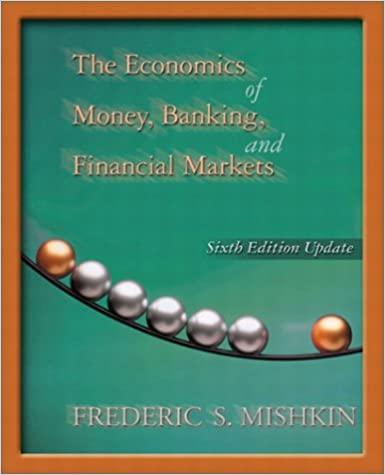Question
Thanks for helping me to solve the below question, the below question is based on Australian legislation and ASX and case study. Question 1 This
Thanks for helping me to solve the below question, the below question is based on Australian legislation and ASX and case study.
Question 1 This question has 3 parts: a, b and c (10 + 12 + 10 = 32 marks)
Westpac faces fines over 'serious and systemic' anti-money laundering breaches, AUSTRAC says AUSTRAC has applied to the Federal Court for civil penalty orders against Westpac for deficient oversight of its anti-money laundering and terrorism financing obligations. Key points: AUSTRAC alleges Westpac breached anti-money laundering laws on more than 23 million occasions The bank recently warned investors it was in discussions with AUSTRAC and it could face a "significant financial penalty" AUSTRAC said some of the breaches relate to transfers to the Philippines and SE Asia, raising child exploitation risks
The bank is alleged to have breached the Anti-Money Laundering and Counter-Terrorism Financing (AML-CTF) Act on more than 23 million occasions, including the failure to adequately monitor the accounts of a convicted child sex offender who was regularly sending money to the Philippines. Westpac more generally failed to "carry out appropriate due diligence on customers sending money to the Philippines and South East Asia for known child exploitation risks," AUSTRAC alleged.
The anti-money laundering regulator is accusing Westpac of failing to report more than 19.5 million international funds transfer instructions to it over a period of five years, for money moving into and out of Australia.
Related to these transfers, AUSTRAC alleges Westpac "allowed correspondent banks to access its banking environment and the Australian Payments System without conducting appropriate due diligence".
Some of these partner banks do business in high-risk countries such as Iraq, Lebanon, Ukraine, Zimbabwe and Democratic Republic of Congo potentially allowing criminals, terrorists and sanctioned individuals or governments to transfer money into or out of Australia.
In a very brief statement before the media at Parliament House, AUSTRAC's chief executive officer Nicole Rose described Westpac's behaviour as "serious and systemic non-compliance".
"Serious and systemic non-compliance leaves our financial system open to being exploited by criminals." AUSTRAC's concise statement of claim outlines the magnitude of the theoretical maximum fine Westpac could face.
"Westpac has contravened the act on over 23 million occasions, each contravention attracting a civil penalty between $17 million and $21 million," the regulator noted.
Assuming 23 million contraventions at the lower end of those maximum penalties, that amounts to a potential maximum fine of $391 trillion.
As highlighted in the Commonwealth Bank money laundering case, the actual penalty paid is likely to be much smaller CBA was facing a theoretical maximum penalty of close to $1 trillion, but ended up settling with AUSTRAC for $700 million in penalties for 53,700 breaches.
Westpac's leaders slammed for 'indifference' to problems AUSTRAC's statement of claim was even more damning of the bank and its management than its media statements.
"These contraventions are the result of systemic failures in its control environment, indifference by senior management and inadequate oversight by the board," it alleged.
"They stemmed from Westpac's failure to properly resource the AML-CTF function, to invest in appropriate IT systems and automated solutions and to remediate known compliance issues in a timely manner. [money laundering/terrorism financing] risk management and compliance."
a) (i) Explain the nature of the conflict between Westpac shareholders and managers from an Agency Theory perspective. (ii) Drawing on the above media article, identify specifically some of these agency conflicts and describe some consequences of these actions for both shareholders and managers in the Westpac case. (4 + 6 = 10 marks)
b) (i) What is corporate social responsibility (CSR)? Explain. (ii) Why should companies care about CSR? Explain. (iii) Discuss the possible reasons and consequences of Westpac failure in terms of CSR generally accepted principles. (4 + 4 + 4 = 12 marks)
c) (i) Explain the role and responsibilities of the Board of Directors. (ii) How could an efficient board help Westpac prevent similar failures in the future? Explain (6 + 4 = 10 marks)
Step by Step Solution
There are 3 Steps involved in it
Step: 1

Get Instant Access to Expert-Tailored Solutions
See step-by-step solutions with expert insights and AI powered tools for academic success
Step: 2

Step: 3

Ace Your Homework with AI
Get the answers you need in no time with our AI-driven, step-by-step assistance
Get Started


